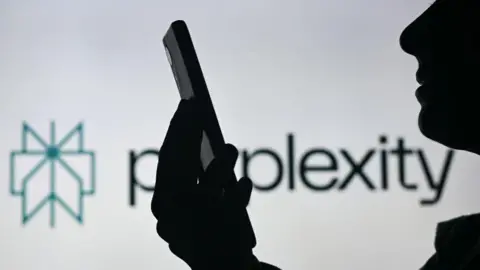In a recent development in the world of technology, the British Broadcasting Corporation (BBC) has issued a stern legal warning to an artificial intelligence (AI) firm known as Perplexity. The BBC claims that Perplexity’s chatbot is reproducing its content “verbatim” without obtaining the necessary permission for such use. This legal action marks a significant moment, being the first time the BBC—one of the globe’s preeminent news organizations—has taken measures against an AI company for copyright infringement.
Following the legal notice, the British media powerhouse has demanded that Perplexity immediately cease using its content, erase any BBC material it possesses, and provide reparations for content that has already been misappropriated. The ramifications of these demands will be closely monitored as they could set a precedent for future copyright disputes involving AI technology.
In its communication to Perplexity, which is based in the United States and run by Aravind Srinivas, the BBC pointed out that the actions of the AI firm constitute a violation of copyright laws in the UK and contravene the BBC’s terms of use. This conflict comes on the heels of research released by the BBC, indicating that numerous AI chatbots—including Perplexity AI—often misrepresent or inaccurately summarize news stories, leading to a potential erosion of trust in established news sources.
The BBC’s outlined concerns touch on the deteriorating depiction of its content in various responses generated by Perplexity, revealing a mismatch with the BBC’s strict Editorial Guidelines. The corporation further emphasized that such inaccuracies could harm its reputation and undermine the goodwill it has earned from its audience, particularly the license fee payers who financially support its operations.
The emergence of AI chatbots and other generative AI technologies has surged in popularity since OpenAI launched ChatGPT in late 2022. However, the rapid advancement of these tools has prompted intense scrutiny over the legality of how they source and utilize existing material. Numerous AI models are built using vast amounts of internet content, often harvested using automated systems known as “web crawlers.” Concerns over web scraping have intensified discussions among British media publishers and creatives, who have been advocating for stronger protections regarding copyrighted material.
The BBC employs a directive called “robots.txt” on its website, which is intended to restrict automated bots and crawlers from extracting data without consent. This command asks these automated systems not to access specific sections of the website, but compliance remains voluntary. The BBC has claimed that despite stating its wishes through the “robots.txt” file, it appears that Perplexity’s systems did not adhere to these instructions. In a previous interview, Srinivas denied that his firm’s crawlers ignored “robots.txt” directives.
Perplexity’s AI chatbot, which markets itself as an “answer engine,” has gained a substantial user base thanks to its capability to swiftly provide information in response to various queries. The firm asserts that it achieves this by meticulously searching the web for credible sources and synthesizing them into user-friendly responses. However, like many AI services, it stresses the importance of users verifying the information provided, as AI can be prone to disseminating inaccuracies.
The unfolding situation has implications not only for Perplexity but also for the broader tech industry as it navigates the evolving landscape of AI technology and copyright issues. Previous incidents where news organizations faced conflicts with AI applications—such as Apple suspending an AI feature that inaccurately summarized BBC news for its app—highlight an ongoing struggle for news outlets to maintain control over their content in an increasingly automated world.
As this legal drama develops, the outcomes could influence how AI companies operate and engage with existing content creators, potentially leading to a prerequisite of clearer guidelines and permissions in their use of published works. Thus, the BBC’s actions might pave the way for a more structured relationship between traditional media and AI-driven technology.
In conclusion, the case stands as a crucial junction where copyright law intersects with emerging technology, challenging both firms and regulatory bodies to navigate the complex web of permissions, rights, and responsibilities in the digital context.



